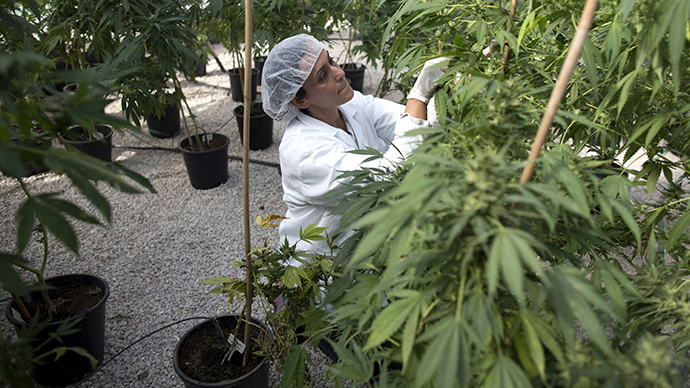Minnesota legalizes medical marijuana, but no smoking allowed

Minnesota became the 22nd state to legalize marijuana for medicinal purposes on Thursday when the governor lent his signature to what many see as the most needlessly strict state marijuana legalization law in the country.
Democratic Governor Mark Dayton signed legislation that does permit Minnesotans who are sick or in serious pain to use marijuana, although – unlike similar laws throughout the country – they will not be allowed to smoke it. More specifically, people in the Midwestern state will still not be allowed to access cannabis in leaf form.
Medical marijuana advocates say that stipulation will make it needlessly difficult for ill residents to find relief. Others have maintained that the new law is an exciting first step that will satisfy the law enforcement community and skeptical doctor groups.
“I pray it will bring to the victims of ravaging illnesses the relief they are hoping for,” Governor Dayton said in a statement to the media Thursday.
Yet a number of experts have said that, in an attempt to compromise for the sake of the bill’s passage, cannabis-friendly lawmakers neutered it to the point of irrelevance. The drug is scheduled to be available by mid-2015 in pill and vapor form, as well as in oil form (which has proven especially successful in treating children with seizures). However, pot advocates say that the best and most beneficial way to consume the drug is in its natural form.
If figures from states that were previously in this situation are any indication, a number of Minnesota residents already use marijuana to treat their pain. While smoking cannabis is currently illegal, users are able to determine how much of the drug to consume by slowly smoking it one puff at a time.
“Patients don’t want to be high. We just want to treat our symptoms,” Patrick McClellan, who currently buys marijuana illegally and vaporizes it to treat his muscular dystrophy, told the Star Tribune.
Patients have also worried that by signing up for the medical marijuana program, they could be putting themselves at risk of falling into the grasp of police. Medical marijuana participants are reportedly at risk of being put in jail for 90 days or fined $1,000 if they make “false statements” about having the drug in plant form.
“If I were to get into this program, and I get the oil and it’s way too powerful and then I decide to go back to leaf, I could be prosecuted,” McClellan said, adding that getting “stoned out of my mind” is not on his to-do list.
Approximately 5,000 patients are expected to apply for entry into the program. The state health department has said there is no limit on the number of people who will be allowed to sign up. The bill also paves the way for a committee that will assess the impact that medicinal marijuana creates.
The bill permits eight dispensaries and two manufacturing facilities to be opened throughout Minnesota. Illinois, a state with roughly double Minnesota’s population, authorized 60 dispensaries and Nevada – which has half the population of Minnesota - authorized 66.
The uncertainty has stifled the normally reliable predictions about how marijuana will affect the state economy. Kris Krane, a managing partner of the Arizona marijuana consulting firm 4Front Advisors, told PoliticsInMinnesota.com that the businesses that normally accompany eased marijuana restrictions will likely be more cautious in this case.
“I think the [Minnesota] program, as it’s currently constructed, is not going to allow for a particularly viable business model,” he said. “Typically the thinking behind companies that do decide to get involved is that they see it as a foot-in-the-door opportunity to essentially get a license to produce and distribute medical cannabis legally, with the hope that at some point the program would be expanded.”














